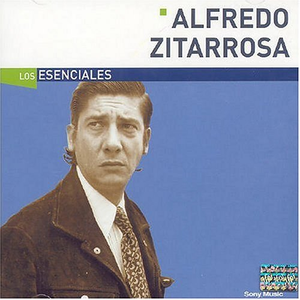Some of his better known songs include “Guitarra Negra”, “El violín de Becho”, “Doña Soledad”, “Pa’l que se va”, “Crece desde el pie”, “Milonga para una niña” and “Adagio en mi país”.
Triunfo Agrario
Alfredo Zitarrosa Lyrics
Jump to: Overall Meaning ↴ Line by Line Meaning ↴
Éste es un triunfo, madre, pero sin triunfo,
nos duele hasta los huesos el latifundio.
Ésta es la tierra, padre, que vos pisabas,
todavía mi canto no la rescata.
Y cuándo será el día, pregunto cuándo
que por la tierra estéril vengan sembrando
¡Hay que dar vuelta el viento como la taba,*
el que no cambia todo, no cambia nada!
Éste es un triunfo, madre, del nuevo tiempo,
de estar bajo la tierra, rompió el silencio.
Éste es un triunfo, padre, de la alegría
de tu sueño en semillas sube la vida.
Sube la vida arriba, hasta la espiga,
que si la tierra es hembra, la tierra es mía,**
adonde nace el alba, yo siembro el día.
* Alfredo Zitarrosa dice Hay que dar vuelta el tiempo como la taba.
** Mercedes Sosa dice que si la tierra es fértil.
The lyrics of Alfredo Zitarrosa's song Triunfo Agrario represent the struggles of the campesinos, the peasant farmers who work on large rural estates or latifundios, in Uruguay. The song speaks about the pain and suffering that these farmers have endured, even when they have achieved a conquest or victory. It is a triumphant ode to the agricultural laborers who have been displaced from their lands, their culture, and their traditions. The song speaks to the cultural identity of the rural people in Uruguay, who face challenges such as landlessness, marginalization, discrimination, and exploitation at the hands of powerful landowners and corporations.
The lyrics express a longing for a new world, where the land is fertile, and one can sow the seeds of progress and liberation. The song speaks about the hope for a time when all campesinos will be able to reclaim their land and their dignity, to be able to sow and reap the fruits of their own labor, and to share in the collective triumph of their struggle. The message is clear: the time for change is now, and we need to turn the tables around by breaking the silence and taking the power back into our hands. The song is a celebration of the rural way of life, of the joy and resilience of the campesinos, and of the transformative power of collective action.
Line by Line Meaning
Éste es un triunfo, madre, pero sin triunfo,
This is a triumph, mother, but without triumph, as the existence of large farms still causes us great pain.
nos duele hasta los huesos el latifundio.
The presence of large farms affects us deeply, to the core.
Ésta es la tierra, padre, que vos pisabas,
Father, this is the land you walked upon,
todavía mi canto no la rescata.
but my song is still not enough to save it.
Y cuándo será el día, pregunto cuándo
When will the day come, I ask when,
que por la tierra estéril vengan sembrando
that all the evicted farmers will sow seeds on the barren land.
todos los campesinos desalojados.
All of the displaced peasants.
¡Hay que dar vuelta el viento como la taba,
We must turn the winds like a spinning top,
el que no cambia todo, no cambia nada!
because if we don't change everything, then nothing will change at all!
Éste es un triunfo, madre, del nuevo tiempo,
Mother, this is a triumph of the new era,
de estar bajo la tierra, rompió el silencio.
of breaking the silence from beneath the earth.
Éste es un triunfo, padre, de la alegría
Father, this is a triumph of happiness,
de tu sueño en semillas sube la vida.
and your dream of life sprouting from seeds comes to fruition.
Sube la vida arriba, hasta la espiga,
Life rises up, reaching to the ears of corn,
que si la tierra es hembra, la tierra es mía,
because if the land is female, then it belongs to me,
adonde nace el alba, yo siembro el día.
where the dawn arises, I sow the day.
Writer(s): Armando Tejada Gomez, Cesar Isella Copyright: Sadaic Latin Copyrights Inc.
Contributed by David D. Suggest a correction in the comments below.
